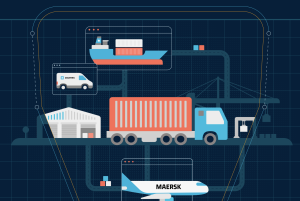 While key subjects such as marketing, finances and business processes are fundamentally important to business success, ‘professional development’ (corporate communication skills, corporate expectations and personal branding/image) poses a greater obstacle when breaking into the first-tier economy, says The Hope Factory’s Sean Krige in this months’ SmartProcurement.
While key subjects such as marketing, finances and business processes are fundamentally important to business success, ‘professional development’ (corporate communication skills, corporate expectations and personal branding/image) poses a greater obstacle when breaking into the first-tier economy, says The Hope Factory’s Sean Krige in this months’ SmartProcurement.
More than any one thing, presenting an unprofessional image (primarily through poor written and verbal communication) will put a speedy end to any potential supplier opportunity within corporate South Africa. Additionally, potential suppliers need to consider management competency, work ethic and accountability, says Krige.
“However, sadly, these expectations are rarely (if ever) clearly communicated to hopeful SMEs.”
Corporate SA’s expectations often differ from those of SMEs
The Hope Factory recently conducted a one-day ‘Access to Markets’ Workshop for a group of its Johannesburg entrepreneurs. During the workshop one of the entrepreneurs and a key investor became embroiled in a heated debate around what constitutes a quality product and the situation had to be closely managed and mediated by the entrepreneur’s mentor.
 “In the end the client was satisfied with the supplied product, but this would not have been the case had it been left to the entrepreneur alone. The presence of a mentor acting as an impartial broker who understands the world of corporate South Africa and that of our SMEs proved invaluable,” notes Krige.
“In the end the client was satisfied with the supplied product, but this would not have been the case had it been left to the entrepreneur alone. The presence of a mentor acting as an impartial broker who understands the world of corporate South Africa and that of our SMEs proved invaluable,” notes Krige.
The Hope Factory attempts to bridge this gap in expectations through dedicating a great deal of its workshop time to professional development: in particular, corporate communication skills, corporate expectations and personal branding/image.
Current South African free-market forces, in many respects, remain in need of external corrective intervention. Broad-based BEE is a good example of an attempt to right some inequalities and a way to open up new markets for SMEs, says Krige.
Of course, B-BBEE is no silver bullet to all our business inequality woes and SMEs need to continue to work hard to achieve their own business success: “it is critical that entitlement-based behaviour is eliminated in order to foster sustained business success in South Africa,” notes Krige.
The Hope Factory addresses this by requiring from each entrepreneur “a number of solid customers”. Furthermore, the entrepreneur’s performance scorecard must fully reflect good scores for company finances and mentorship, helping to verify the entrepreneur’s ability to deliver as expected, while seeking to promote businesses that have earned the right to provide their services to The Hope Factory investors.
“I am very excited at the prospect of our SMEs doing sustainable business with corporate South Africa, particularly in view of the tremendous synergies and benefits emanating from collaborations between the ‘Davids’ and ‘Goliaths’ of our economy,” concludes Krige.
The Hope Factory will be at the Absa Enterprise Development GROW Conference, hosted at Smart Procurement World 2013. For more information on how The Hope Factory can assist proven entrepreneurs to grow their businesses visit TheHopeFactory.co.za


























